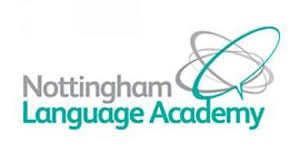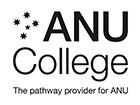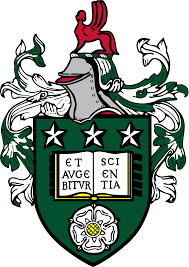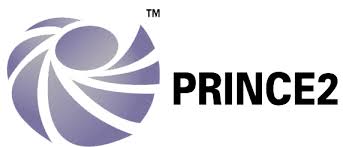
Developing Procurement Management Processes, Policies, and Service Level Agreements
Course ID: 2507210101135EGI
Course Dates : 21/07/25 Course Duration : 5 Studying Day/s Course Location: London, UK
Language: Bilingual
Course Category: Professional and CPD Training Programs
Course Subcategories: Leadership and Management Excellence
Course Certified By: * Projacs Academy
* Professional Training and CPD Programs
Certification Will Be Issued From :
KSA
Course Fees: £4,838.34
Vat Not Included in the price. VAT may vary depending on the country where the course or workshop is held.
Click to Pay
Date has passed please contact us Sales@e-s-hub.com
Course Information
Introduction
Procurement management stands as a cornerstone of organizational success, influencing cost efficiency, operational continuity, and strategic alignment. As industries evolve and global supply chains grow increasingly complex, the ability to design and implement robust procurement processes, policies, and service level agreements (SLAs) has become indispensable. This course delves into the intricacies of procurement management, equipping participants with the tools and frameworks necessary to navigate this dynamic field. By addressing both foundational principles and advanced strategies, the program ensures that learners can craft solutions tailored to their unique organizational needs.
A recurring challenge in procurement lies in balancing cost-effectiveness with quality and compliance. Organizations often struggle to establish clear policies that align with regulatory requirements while fostering strong supplier relationships. For instance, a case study from a multinational manufacturing firm revealed significant inefficiencies due to poorly defined SLAs, resulting in delayed deliveries and strained partnerships. This course addresses such gaps by teaching participants how to create transparent, actionable policies that mitigate risks and enhance collaboration. Drawing on Porter’s Value Chain Model, the program emphasizes the role of procurement in driving competitive advantage.
The benefits of mastering procurement management extend beyond individual career growth to encompass broader organizational impact. Professionals equipped with these skills can streamline operations, reduce costs, and ensure adherence to ethical standards. From a macro perspective, organizations with optimized procurement functions report higher profitability and resilience against market disruptions. A notable example is a retail giant that revamped its procurement strategy during the pandemic, leveraging predictive analytics to secure critical supplies and maintain customer satisfaction.
Industry trends further underscore the urgency of adopting modern procurement practices. The rise of digital transformation, artificial intelligence, and sustainability initiatives has reshaped traditional procurement models. Frameworks such as the Supply Chain Operations Reference (SCOR) model highlight the importance of integrating technology and data-driven insights into procurement workflows. This course incorporates these trends, ensuring participants remain at the forefront of innovation.
Real-world applications abound, illustrating the transformative power of effective procurement management. Consider a healthcare provider that implemented stringent SLAs with suppliers to guarantee the timely delivery of medical equipment. This initiative not only improved patient outcomes but also enhanced stakeholder trust. Similarly, an energy company adopted sustainable procurement policies, reducing its carbon footprint while achieving cost savings. These examples demonstrate the tangible value of the skills imparted in this course.
Ultimately, this program seeks to empower participants to become catalysts for change within their organizations. By blending theoretical knowledge with practical expertise, it fosters a deep understanding of procurement dynamics. Whether you are a seasoned professional seeking to refine your skills or a newcomer eager to grasp the fundamentals, this course offers a comprehensive pathway to excellence in procurement management.
Objectives
By attending this course, participants will be able to:
Analyze the key components of effective procurement processes and identify areas for improvement within their organizations.
Design comprehensive procurement policies that align with regulatory standards and organizational goals.
Evaluate supplier performance using metrics and benchmarks to ensure compliance with SLAs.
Implement risk management strategies to address potential disruptions in the procurement lifecycle.
Apply digital tools and technologies to enhance transparency and efficiency in procurement operations.
Develop sustainable procurement practices that support environmental and social responsibility objectives.
Synthesize industry best practices to create customized procurement frameworks tailored to specific organizational needs.
Who Should Attend?
This course is ideal for:
Procurement managers, supply chain professionals, and logistics coordinators seeking to enhance their strategic capabilities.
Finance and operations executives tasked with optimizing resource allocation and cost management.
Consultants and advisors specializing in organizational efficiency and process improvement.
Public sector officials responsible for managing government contracts and vendor relationships.
Early-career professionals aspiring to build a strong foundation in procurement management.
This course is particularly valuable for individuals aiming to bridge the gap between theoretical knowledge and practical application. While prior experience in procurement is beneficial, the program is structured to accommodate both intermediate learners and those new to the field. Advanced practitioners will appreciate the opportunity to refine their skills and explore emerging trends.
Training Method
• Pre-assessment
• Live group instruction
• Use of real-world examples, case studies and exercises
• Interactive participation and discussion
• Power point presentation, LCD and flip chart
• Group activities and tests
• Each participant receives a 7” Tablet containing a copy of the presentation, slides and handouts
• Post-assessment
Program Support
This program is supported by:
* Interactive discussions
* Role-play
* Case studies and highlight the techniques available to the participants.
Daily Agenda
The course agenda will be as follows:
• Technical Session 08.30-10.00 am
• Coffee Break 10.00-10.15 am
• Technical Session 10.15-12.15 noon
• Coffee Break 12.15-12.45 pm
• Technical Session 12.45-02.30 pm
• Course Ends 02.30 pm
Course Outlines
Foundations of Procurement Management
Overview of procurement lifecycle and its strategic importance.
Key frameworks: SCOR model, Porter’s Value Chain, and Kraljic Matrix.
Understanding regulatory compliance and legal considerations.
Case study: Lessons from a Fortune 500 company’s procurement overhaul.
Day 2:
Designing Effective Procurement Policies
Principles of policy development and alignment with organizational goals.
Risk assessment techniques and mitigation strategies.
Incorporating sustainability and ethical sourcing into policies.
Workshop: Drafting a procurement policy framework.
Day 3:
Crafting Service Level Agreements (SLAs)
Defining SLA components: scope, deliverables, and performance metrics.
Negotiation strategies for SLA development.
Monitoring and enforcing SLA compliance.
Group activity: Role-playing SLA negotiations.
Day 4:
Leveraging Technology in Procurement
Introduction to procurement software and automation tools.
Data analytics for decision-making and forecasting.
Cybersecurity considerations in digital procurement systems.
Hands-on session: Using procurement platforms.
Day 5:
Advanced Topics and Future Trends
Sustainable procurement practices and circular economy principles.
Artificial intelligence and machine learning applications.
Building resilience in global supply chains.
Capstone project: Presenting a comprehensive procurement strategy.



















































